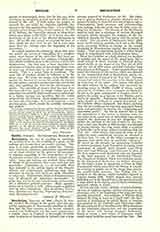

Revocation, the act of recalling or annulling, the reversal of an act, the recalling of a grant, or the making void of some deed previously existing. This term is of wide application in canon law. Grants, laws, contracts, sentences, jurisdiction, appointments are at times revoked by the grantor, his successor, or superior according to the prescriptions of law. Revocation without just cause is illicit, though often valid. Laws and customs are revoked when, owing to change of circumstances, they cease to be just and reasonable. Concordat (q.v.) are revocable when they redound to the serious injury of the Church. Minors and ecclesiastical institutions may have sentences in certain civil trials set aside (Restitutio in integrum). Contracts by which ecclesiastical property is alienated are sometimes rescindable. A judge may revoke his own interlocutory sentence but not a definitive judicial sentence. Many appointments are revocable at will; others require a judicial trial or other formalities. (See Benefice; Canonical Faculties; Pontifical Indults; Ecclesiastical Jurisdiction.)
ANDREW B. MEEHAN

